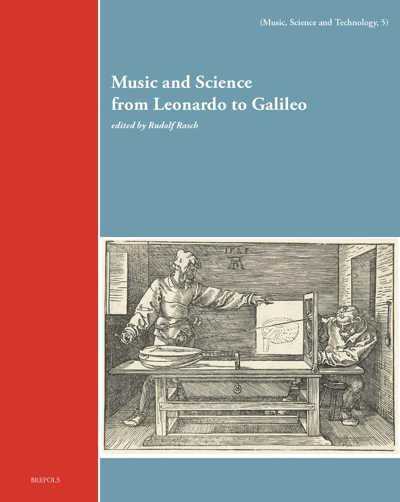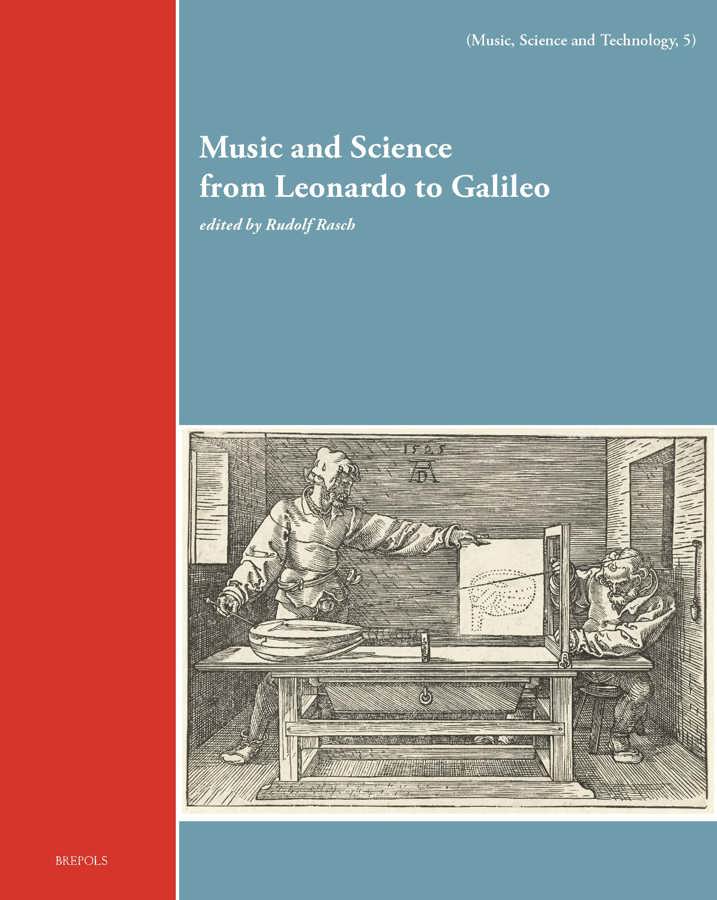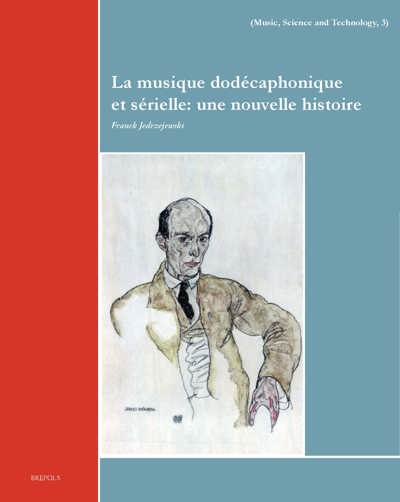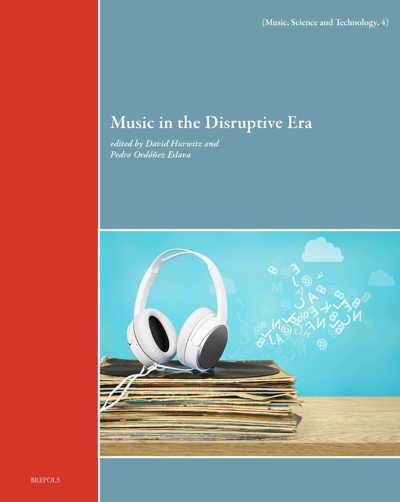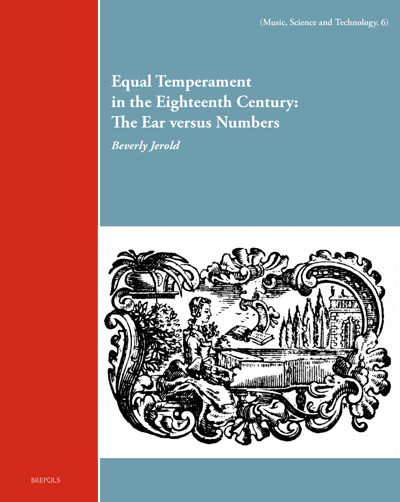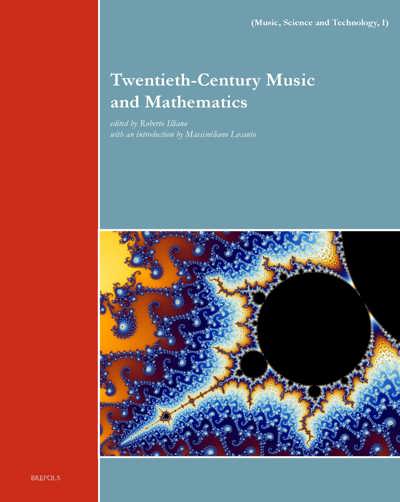
Music and Science from Leonardo to Galileo
Rudolf Rasch (ed)
- Pages: 440 p.
- Size:210 x 270 mm
- Illustrations:51 b/w, 40 musical examples
- Language(s):English, Italian
- Publication Year:2022
- € 120,00 EXCL. VAT RETAIL PRICE
- ISBN: 978-2-503-60080-2
- Hardback
- Available
The volume collects studies about the interrelations between music and science between Leonardo and Galilei
Rudolf Rasch studied musicology in Amsterdam and was affiliated with the Institute of Musicology, later Deparment of Media and Culture Studies, of Utrecht University from 1977 to 2010. His main research interests are the musical history of the Netherlands, tuning and temperament, and the works of composers such as Corelli, Vivaldi, Geminiani and Boccherini. He has published articles, books and editions related to all of these fields.
Music is not only an art (either as the art of composition or the art of performance) but also a subject for scientific investigation. Scientists have always been interested in musical sound, philosophers in the impact of music on the human mind, and musicians may have been puzzled by the scientific foundations of their art. This book collects fourteen studies by authors from various countries about the interrelations between music and science as apparent in the long century from the lifetime of Leonardo da Vinci (1452-1519) to that of Galileo Galilei (1564-1642), a period termed Renaissance, Early Modern or the time of the (first) Scientific Revolution depending on the angle from which this period is approached. It is a time when the Aristotelian physics was replaced by modern pre-Newtonian physics, when Catholicism was challenged by the Reformation, when traditional polyphonic musical styles were supplemented by new monodic styles, vocal and instrumental. Both Leonardo and Galileo had vivid interests in music, but they were not the only ones. The ideas of scientists and philosophers, such as Marin Mersenne, René Descartes, Giordano Bruno and Philipp Melanchton are also discussed.
Library Sigla
Greek Writings
Abbreviations of Reference Works
Rudolf Rasch — Introduction
The (Long) Sixteenth Century Music
David E. Cohen — «Latet discordantia quartae»: An Early Natural-Scientific Explanation of Upper-Voice Fourths by Franchinus Gaffurius
Science
Paolo Alberto Rismondo — Teoria musicale e patronage nobiliare a Venezia nel Cinquecento
Alexander Jakobidze-Gitman — Nascent Mechanism in Philip Melanchthon’s References to Josquin des Prez
Carlo Bosi — «Intra quaternarii limites musicam intelligunt omnem consonantiam»: La musica nel pensiero di Giordano Bruno
Gioia Filocamo — Dissezioni anatomiche con musica a Padova nella prima età moderna
The (Long) Seventeenth Century
Music
Daniel Martín Sáez — Galileo and Opera: Music, Science, Religion, and Politics in the Seventeenth Century
Jason Stoessel & Denis Collins — «La grandezza del numero sonoro»: Canonic Techniques, Combinatorics and Early Scientific Thought in Seventeenth-Century Rome
Carlos C. Iafelice — Giovanni Battista Doni on the Tonal Space of Chromatic Music: The Case of Gesualdo’s Tu m’uccidi, o crudele
Rudolf Rasch — Me veux-tu voir mourir: Joan Albert Ban versus Antoine Boësset (1640–1641)
Galliano Ciliberti— La Missa La luna piena (1657–1658) di Giuseppe Corsi e le teorie galileiane
Science
Rudolf Rasch — René Descartes and Isaac Beeckman: The Philosopher and the Schoolmaster
Leendert van der Miesen — The Trumpet as Nature’s Voice: Marin Mersenne and the Nature of Music
Roberta Vidic — Joachim Jungius and the Question of Music as an Experimental ‘Mixed Science’
Théodora Psychoyou — Trajectories of Musical Acoustics in Seventeenth-Century French Theory and Experiment: Sound, Noise, and the Authorities of the Past
Adam Fix — The Acoustical Paradox: How Music Was Unmoored and Set Adrift from Sciences in the Seventeenth Century
Index of Names
